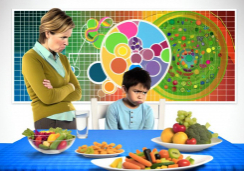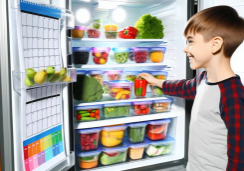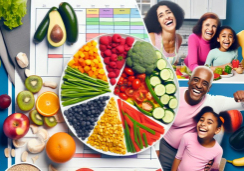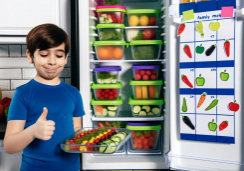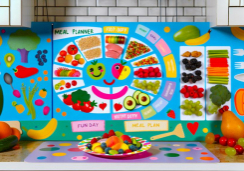Why Choose Vegetarian Meal Prep for Weight Loss?
Imagine you've tried various diets and finally stumbled upon vegetarian meal prep as your new strategy for weight loss. You're not alone in this journey; many have found that packing their fridge with pre-portioned, plant-based meals not only streamlines their weekly routine but also significantly cuts down on calorie intake.
What's not immediately apparent is how this method can change your relationship with food, turning meal times into an opportunity for nourishment rather than just eating less. You might wonder how a diet, often rich in carbohydrates, can help in shedding pounds or what specific vegetarian foods might accelerate weight loss.
As you consider rearranging your eating habits, it's crucial to understand the intricacies of vegetarian nutrition and how it aligns with your weight loss goals. Let this introduction be the first step towards unraveling the potential benefits that a well-planned vegetarian meal prep can offer for your health and waistline.
Understanding Vegetarian Nutrition
When you embrace a vegetarian lifestyle, it's essential to understand the nutrition fundamentals that will help you maintain health while losing weight. Vegetarian diets come in various forms, including lacto-ovo-vegetarian, vegan, and flexitarian. Each offers unique benefits for weight loss, overall health, and the environment. To reap these benefits, you'll need to focus on key nutrients.
Protein is crucial, and you should aim to include vegetarian protein at every meal. Plant-based proteins, such as legumes, nuts, and seeds, not just support muscle health but also keep you feeling full.
Whole grains provide essential fiber and nutrients while helping to maintain steady blood sugar levels. In contrast, refined grains should be limited due to their lower nutritional value.
Healthy fats from avocados, nuts, and seeds contribute to satiety and nutrient absorption. Fruits and vegetables, packed with vitamins and minerals, are foundational to a vegetarian diet. They offer a spectrum of flavors and textures to keep your meals interesting.
Consulting a registered dietitian can help ensure you're getting adequate amounts of iron, calcium, vitamin B12, and omega-3 fatty acids. Proper meal planning and controlling portion sizes are key strategies for successful weight loss and lasting well-being.
Benefits of Meal Prepping
Embracing meal prepping can significantly streamline your weekly routine, saving both time and money while supporting your weight loss goals. The benefits of meal prepping extend beyond mere convenience.
By planning your meals, you're more likely to stick to healthy eating habits. Vegetarian options, rich in whole foods like nuts and seeds, olive oil, and grains such as quinoa, offer a plethora of nutrients essential for a balanced diet.
Preparing your meals in advance ensures that you have high-protein meals, rich in fiber, ready to go. This can help keep you satiated and reduce the temptation to indulge in less nutritious snacks. Additionally, a vegetarian diet, when well-planned, is associated with a lower risk of heart disease, thanks in part to its emphasis on plant-based foods.
Managing portion sizes is simpler when meals are pre-portioned, aiding in weight loss by preventing overeating. You'll also reduce the number of dishes you have to wash, making your kitchen routine more efficient.
In essence, meal prepping is a strategic approach to maintain a healthy lifestyle, and for you, it could be the key to achieving and maintaining your desired weight.
Crafting Balanced Vegetarian Menus
To craft balanced vegetarian menus, it's essential to include a variety of protein sources like tofu, tempeh, dairy, eggs, and pulses to satisfy your nutritional requirements. Eating enough protein is crucial for maintaining muscle mass and metabolism, which can help in overcoming barriers to losing weight.
A healthy vegetarian diet isn't just about what you remove, but also what you include. Therefore, integrating complex carbohydrates such as whole grains, alongside a rainbow of vegetables, particularly leafy greens, will ensure you're getting a wide spectrum of vitamins and essential minerals.
In addition to protein and complex carbs, don't forget to add healthy fats from avocados, nuts, and seeds. These fats are important for your overall well-being and can keep you satiated, making it easier to stick to your meal plan for weight loss.
Paying attention to portion sizes is another critical factor. Meal prepping can help control your calorie intake, ensuring that your vegetarian diets are both balanced and conducive to weight management.
Vegetarian Foods for Optimal Weight Loss
Selecting the right vegetarian foods is key to enhancing weight loss efforts. Options like high-protein tofu, tempeh, and legumes can nourish your body and help shed unwanted pounds. To optimize your vegetarian meal plan for weight loss, focus on whole foods that are minimally processed and rich in nutrients. These foods can help with weight loss as they tend to contain fewer calories while being more filling.
Here are some top choices to include:
- Legumes: Lentils, beans, and chickpeas are high in protein and fiber, which can increase satiety and reduce overeating.
- Whole Grains: Quinoa, brown rice, and oats have complex carbohydrates that provide sustained energy and don't spike your blood sugar like refined carbs.
- Leafy Greens and Vegetables: Spinach, kale, and broccoli are low in calories but high in fiber and beneficial plant compounds.
- Nuts and Seeds: While higher in calories, they're nutrient-dense and contain healthy fats that are essential for a balanced plant-based eating plan.
Avoid processed vegetarian foods that are often high in refined carbs and unhealthy fats. Striving for a healthy weight means making mindful choices that align with your goals. Remember, it's not just about eating fewer calories, but also about the quality of the calories you consume.
What Are the Benefits of Vegetarian Meal Prep for Weight Loss?
Vegetarian meal prep ideas can be an effective tool for weight loss. By planning and preparing healthy, plant-based meals in advance, you can control portion sizes and avoid indulging in unhealthy options. This can lead to reduced calorie intake, increased nutrient consumption, and ultimately, support weight loss goals.
Overcoming Common Vegetarian Dieting Pitfalls
While adopting a vegetarian diet can offer numerous health benefits, it's essential to navigate common pitfalls such as the tendency to overeat refined carbohydrates and calorie-dense foods to ensure successful weight loss. Vegetarian eating sometimes leans too heavily on processed foods high in added sugars and fats, which can lead to weight gain and increase the risk of heart disease.
To counteract a diet low in protein, make sure you're incorporating protein at every meal and snack. This could include a variety of beans, lentils, tofu, and tempeh. Be cautious with imitation dairy products, as they can be high in calories and low in nutritional value. Instead, choose plant-based options that are closer to their whole food form.
Portion control is paramount; it's easy to consume larger portions without realizing it, especially when foods are perceived as 'healthy.' Focus on filling half your plate with non-starchy vegetables, which can help you feel full without excessive calories. Avoid decision fatigue by planning meals ahead and preparing them in advance.
Frequently Asked Questions
What Are the Benefits of Being Vegetarian for Weight Loss?
You'll boost your plant-based metabolism and satiety levels with nutrient-dense, whole foods. This approach to caloric control, high in fiber and low in fat, aids in managing cholesterol for effective weight loss.
Why Is Meal Prepping Good for Weight Loss?
You'll find meal prepping great for weight loss due to portion control, consistent eating, and calorie management. It's time-saving, budget-friendly, and helps in nutrient tracking, snack regulation, waste reduction, and habit formation with flavor variety.
Why Is It Important for a Vegetarian to Plan Their Diet?
You must plan your diet to ensure nutrient balance, including protein sources, iron, and calcium. It prevents vitamin deficiencies, highlights zinc and omega-3 fats, requires B12 supplementation, and promotes fiber benefits with meal variety.
What Are 2 Reasons for Choosing a Vegetarian Diet?
You'll embrace ethical eating and support animal welfare while indulging in nutrient-rich foods and increased fiber. It leads to a healthier heart by reducing saturated fat and cholesterol levels, benefiting the climate.
Conclusion
In conclusion, vegetarian meal prep is an excellent strategy for shedding pounds. It's not just about cutting calories; it's about nourishing your body with high-fiber, nutrient-dense foods that satisfy hunger and support overall health.
By planning your meals, you avoid the diet pitfalls of convenience eating. Remember, balance is key. With the right vegetarian choices, you're setting yourself up for weight loss success without compromising on nutrition or flavor.

